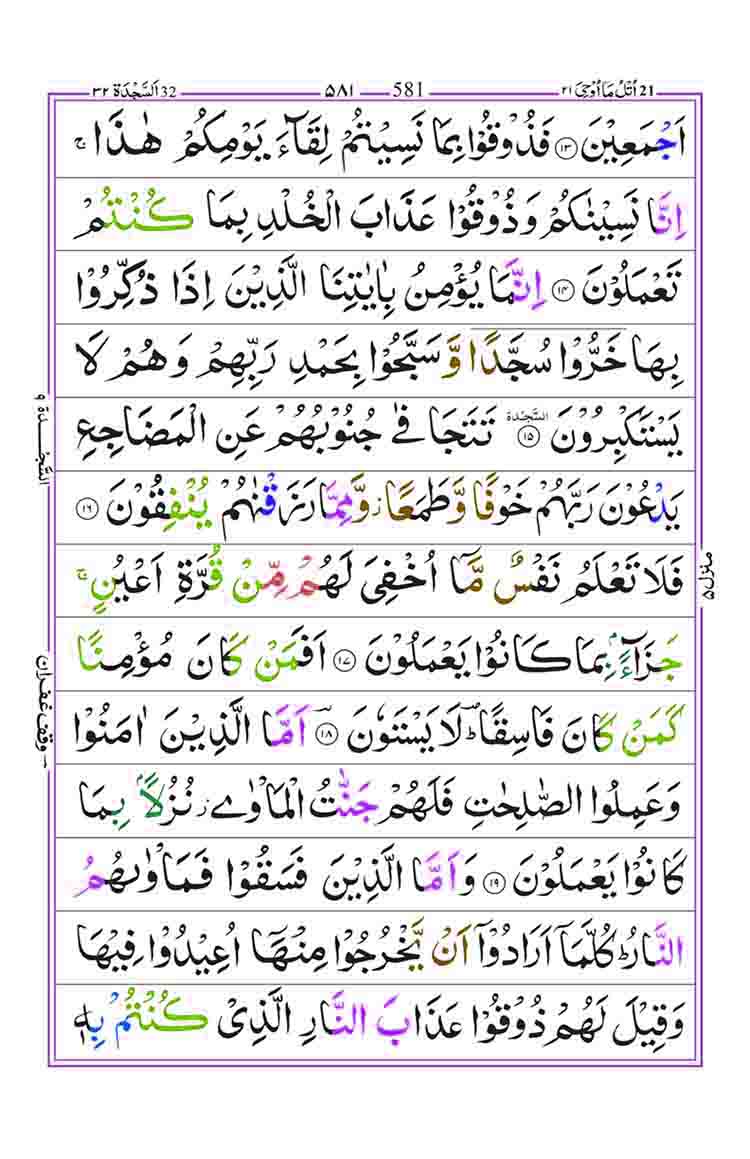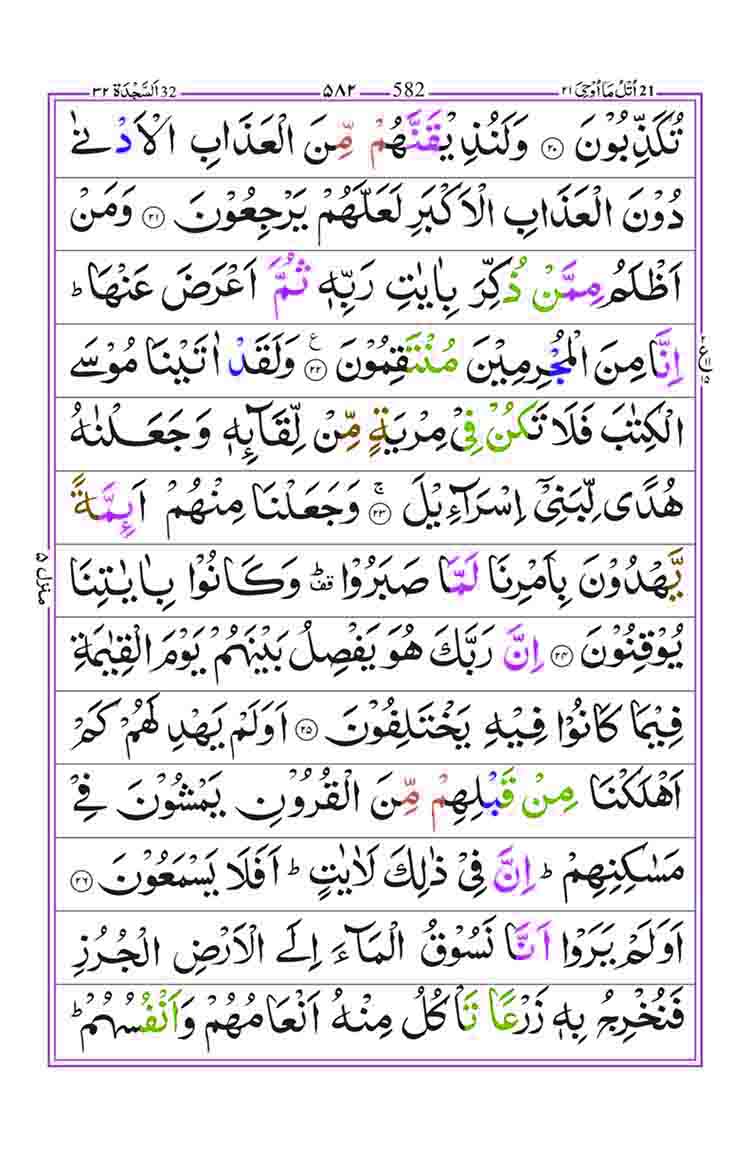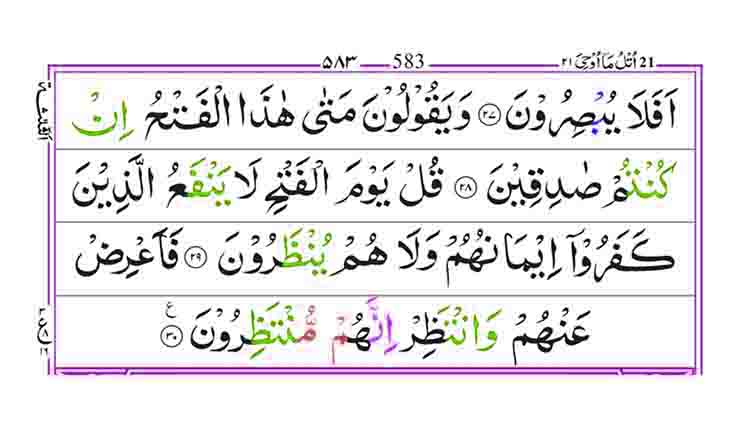Surah As Sajdah
Surah Sajdah, the 32nd chapter of the Quran, holds a special place in the hearts of believers for its profound spiritual significance. Comprising 30 verses, this Surah emphasizes the importance of prostration (sajdah) as an act of worship and submission to Allah.
Surah Sajdah begins by asserting the divine origin of the Quran and the guidance it provides. It narrates the stories of previous prophets, illustrating the consequences of belief and disbelief. The central theme revolves around the inevitability of prostration before Allah on the Day of Judgment, underscoring the gravity of acknowledging His sovereignty.
(PDF should be attached)
| Surah As Sajdah Ayats | Surah As Sajdah Words | Surah As Sajdah letters | Surah As Sajdah Rukus |
|---|---|---|---|
| 30 | 407 | 1542 | 3 |
[wpdatatable id=7]





Reading Surah Sajdah carries numerous benefits for believers. The primary focus is on the spiritual elevation achieved through the physical act of prostration. The Surah serves as a reminder of the humility and devotion required in worship, emphasizing the significance of bowing down before the Almighty.
One of the key benefits is the purification of the soul. Surah Sajdah encourages believers to reflect on their actions, seek forgiveness for their shortcomings, and strengthen their connection with Allah. Regular recitation of this Surah fosters a sense of inner peace and spiritual clarity.
Surah Sajdah also serves as a source of guidance in times of distress. Its verses reassure believers, reminding them of Allah’s mercy and the ultimate reward for those who remain steadfast in their faith. This Surah instills hope and resilience, offering solace during challenging moments.
Furthermore, Surah Sajdah is a means of seeking forgiveness. By reciting and internalizing its verses, believers acknowledge their dependence on Allah’s mercy and express remorse for any transgressions. This process of seeking forgiveness is integral to spiritual growth and moral development.
In conclusion, Surah Sajdah encapsulates the essence of submission and devotion to Allah. Reading and contemplating its verses not only reinforce the importance of prostration in worship but also bring about a myriad of spiritual benefits. From soul purification to seeking forgiveness and finding solace in times of adversity, Surah Sajdah serves as a beacon of guidance for believers on their journey of faith.
